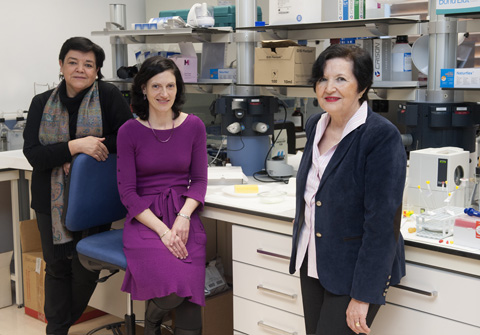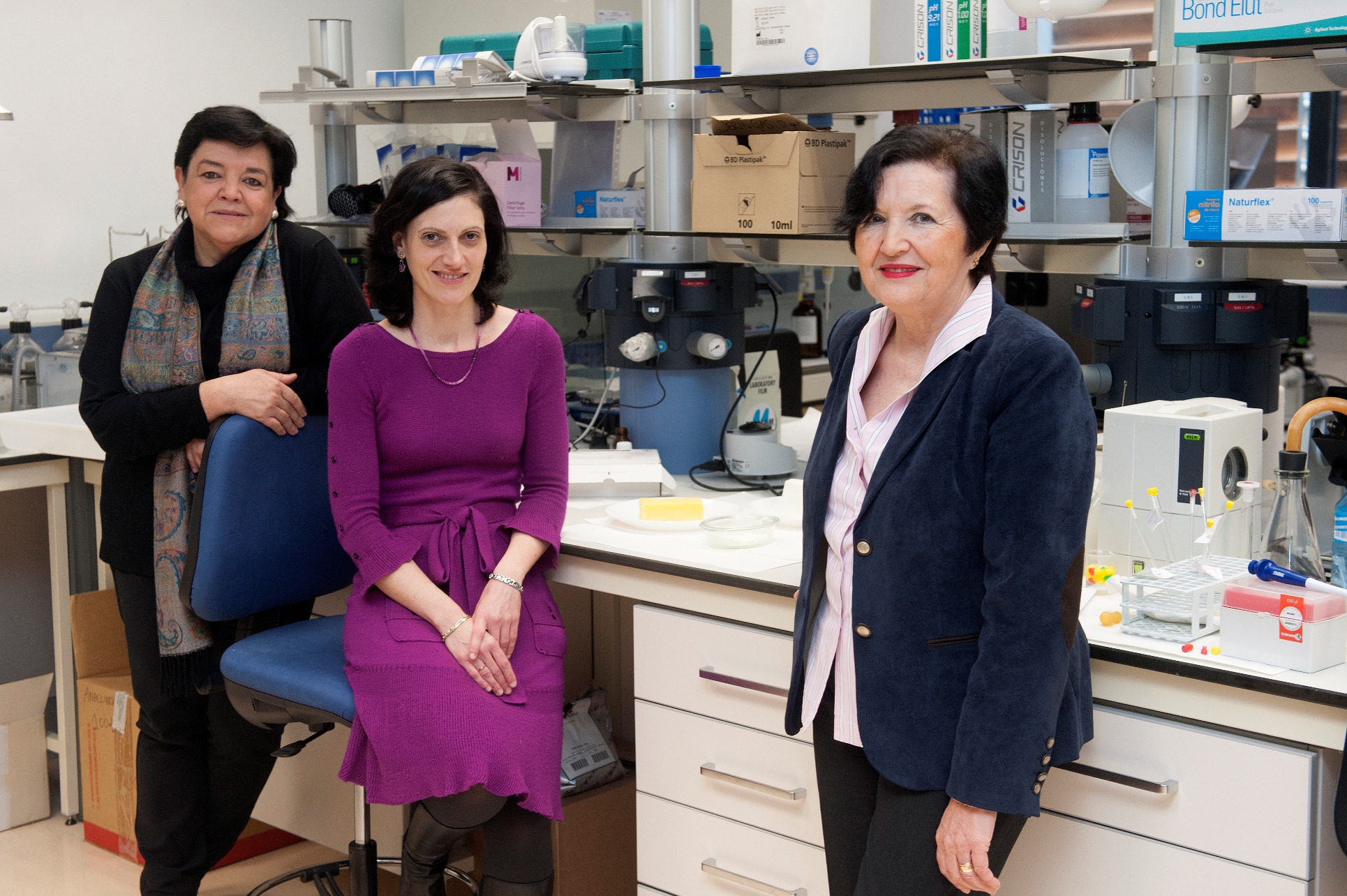Phytosterol-enriched margarines degrade less due to the effect of heat than other margarines with a similar fat composition, but not enriched with these components. That is the main conclusion of the study conducted by three researchers at the UPV/EHU's Faculty of Pharmacy; it demonstrates for the first time the effect of the presence of these molecules on the thermo-oxidative degradation of margarines.
-

Azukrea eta edulkoratzaileak. Zer jakin behar dut?
-

Athletic zuri ta gorria, zu zara nagusia, baina zertan? Gizonezko futbol profesionalaren gaitasun (im)mobilizatzaileari buruzko hausnarketa soziologikoa
-

Unibertsitateko elikadura ingurune osasungarriago baten bila
-

Iñigo Ugedo Vicario: «Modu aktiboan parte hartuko dugu unibertsitateko aldaketa prozesuetan»
-

UPV/EHUko Gobernu Kontseiluak “Palestina laguntzeko manifestua Gazako hondamendi humanitarioaren aurrean” izeneko adierazpena onartu du
Margarines enriched with phytosterols degrade less due to heat
Researchers at the UPV/EHU-University of the Basque Country have for the first time demonstrated the effect of these molecules on the thermo-oxidative behaviour of margarine
- Research
First publication date: 10/02/2016

The aim of the work conducted by the lecturers María Dolores Guillén, María Luisa Ibargoitia and Patricia Sopelana was to study how various factors, in particular the concentration of fat and phytosterols, influence the behaviour of margarines under thermo-oxidative conditions. For this purpose, margarines containing fat of a similar type but with a different concentration of phytosterols and fat were heated to 180°C. The changes in the main components of the lipids of the margarines and the formation of new compounds throughout the heat treatment were monitored by means of nuclear magnetic resonance.
Phytosterols or plant sterols are molecules of a steroid type that are widespread in food of plant origin (the seeds of legumes, for example). They can lower cholesterol levels as they compete with the latter when they are absorbed in the intestine. Despite that, the fact that they might exert a beneficial effect in connection with preventing cardiovascular diseases has not been proven until now.
As the researchers explained, "the results show that the presence of high concentrations of phytosterols appears to have an antioxidant effect, as it causes the thermo-oxidation process to slow down and some secondary oxidation products such as aldehydes, alcohols and epoxides to be generated to a lesser degree. It is worth pointing out that some of these three compounds are toxic for human beings.
What is more, the water-oil ratio also has a significant impact on the behaviour of margarine that has been subjected to heating so that the lower the fat concentration is, the greater is its degradation rate under testing conditions. These results are similar to the ones observed previously in other types of oil in water emulsions.
This is the first time that the effect of the concentration of fat and the presence of high concentrations of phytosterols on the thermo-oxidative degradation of margarines has been demonstrated. Phytosterols can be added to margarines when they are being made and both their content and the percentage of fat contained in the margarine is specified on the labels of the commercial products.
The GPROCAYSEAL Research Group
María Dolores Guillén, María Luisa Ibargoitia and Patricia Sopelana belong to the ‘Food Processing, Quality and Safety' research group comprising members of the Food Technology Area of the Department of Pharmacy and Food Sciences of the UPV/EHU's Faculty of Pharmacy. Its sphere of interest is connected with the study of the effect produced by processing on various aspects of food quality and safety.
Bibliographical reference
Sopelana, P., Ibargoitia, M.L., Guillén, M.D. Influence of fat and phytosterols concentration in margarines on their degradation at high temperature. A study by H-1 Nuclear Magnetic Resonance. Food Chemistry 197 (2016), 1256-1263.
Photos: Nuria González. UPV/EHU




